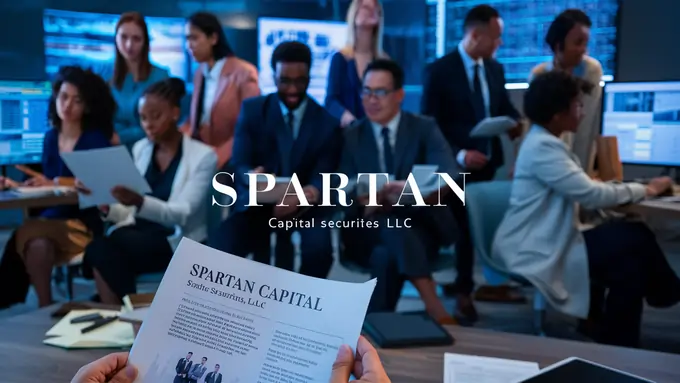
How to Mediate a Legal Dispute: Tips and Strategies
Mediation is a form of alternative dispute resolution that helps parties resolve legal conflicts without going to court. It involves a neutral third party, called a mediator, who facilitates communication and negotiations between the disputing parties.
What is Mediation and How Does It Work?
Understanding the Mediation Process
Mediation is an informal process where a neutral third party, the mediator, assists two or more parties in reaching a mutually agreeable resolution to their dispute. The mediator does not have the authority to impose a solution but rather helps the parties communicate, negotiate, and find common ground.
The Benefits of Mediation
Mediation offers several advantages over traditional litigation, including cost savings, time efficiency, confidentiality, and the preservation of relationships. It is a flexible dispute resolution process that allows parties to have more control over the outcome and tailor solutions to their specific needs.
Key Differences Between Mediation and Arbitration
While both mediation and arbitration are types of alternative dispute resolution, they differ in several ways. Arbitration is a more formal process where a neutral third party, the arbitrator, makes a binding decision after hearing evidence from both sides. Mediation, on the other hand, is a facilitated negotiation process, and any agreement reached is voluntary.
Why Choose Mediation Over Going to Court?

Mediation’s awesome ’cause it lets parties to focus on finding a middle ground without the stress and drama of a courtroom.
It’s faster and way cheaper too! Plus, you get to keep things private.
If you wanna keep control and avoid a judge calling the shots, mediation’s the way to go.
Advantages of Mediation Over Litigation
Mediation offers several advantages over traditional litigation, including cost savings, time efficiency, confidentiality, and the preservation of relationships. It is a flexible dispute resolution process that allows parties to have more control over the outcome and tailor solutions to their specific needs.
Cost and Time Efficiency of Mediation
Mediation is generally less expensive and faster than going to court, as it avoids the high legal fees and lengthy court proceedings associated with litigation. According to a study by the U.S. District Court for the Northern District of California, the average cost of mediation was $4,570, while the average cost of litigation was $90,905.
Preserving Relationships Through Mediation
Mediation helps preserve relationships between the parties, as it is a collaborative process focused on finding mutually acceptable solutions. This is particularly important in cases involving family law, business partnerships, or ongoing relationships where maintaining a positive dynamic is essential.
What is the Role of the Mediator?
So, what’s the role of a mediator? Basically, they use mediation to help people resolve conflicts. Mediation is a flexible dispute process where the mediator helps the parties talk it out and find solutions without going in front of a judge. It’s a cool form of dispute resolution where the mediator facilitates the resolution rather than making decisions for them.
Mediation is also a great way to handle conflicts because it gets the parties to the dispute to communicate openly and honestly. The mediator encourages the parties to have full and frank discussions about the issues, helping everyone focus on the heart of the matter, or the actual subject of the dispute.
With some training and experience, the mediator does not decide the outcome but helps bring the parties together. The goal is to find a resolution that everyone can live with. Plus, because the parties are generally more involved, the resolutions are often more satisfying than those imposed by a judge.
Lots of lawyers and the mediator community, including the bar association, really back mediation. They find it leads to a better overall resolution of disputes and saves time and money. So yeah, mediation works pretty well for most people!
How a Mediator Facilitates the Process
The mediator is a neutral third party who facilitates the mediation process. They assist the parties in communicating effectively, identifying issues, exploring options, and finding common ground. The mediator does not take sides or impose a solution but rather guides the parties toward a mutually acceptable resolution.
The Mediator’s Neutrality and Confidentiality
Mediators are bound by strict codes of conduct and confidentiality rules. They must remain impartial and cannot disclose sensitive information shared during the mediation process without the parties’ consent. This confidentiality fosters an environment of trust and open communication.
Qualifications and Training of a Mediator
Mediators typically undergo extensive training in mediation theory and practice, conflict resolution, negotiation techniques, and communication skills. Many mediators are also lawyers or have experience in the subject matter of the disputes they mediate, such as family law or business disputes.
How to Prepare for a Mediation Session?
Getting ready for a mediation session? It’s all about knowing what you’re in for. Mediation as a process is meant to be flexible—and unlike a courtroom drama with a judge or jury, an impartial third party or mediator helps out. Mediation can also be a good place to share sensitive information, but remember: bring sensitive information only on official terms.
Don’t forget that legal advice might come in handy too. The whole point is that mediation allows all the parties want to participate in the process and find some middle ground. Mediation may not always work out, but hey, if mediation fails, there are other options. And yep, mediation remains pretty popular for a reason.
Prior to the mediation, brush up on some mediation skills or maybe look into a mediation training program. Whether it’s your first time or you’ve got some mediation experience, a quick refresher won’t hurt. Just keep in mind the conduct for mediators and you’re golden. After all, mediation provides a less stressful way to sort things out, and mediation is one of several methods to solve disputes.
Preparing Your Case for Mediation
Getting ready the right way is super important if you want your mediation to go smoothly. Parties should gather all relevant documents, evidence, and information pertaining to their case. They should also clearly define their goals, interests, and the potential areas for compromise.
Effective Communication Skills in Mediation
Good communication is key when it comes to mediation. Parties should practice active listening, remain open-minded, and express themselves clearly and respectfully. They should also be prepared to engage in collaborative problem-solving and compromise.
Understanding the Joint Session and Private Caucus
Mediation generally begins with a joint session where all parties and the mediator are present. The mediator may also hold private caucuses with each party separately to discuss sensitive information or explore settlement options confidentially.
How Do Parties Reach a Mediated Agreement?
Alright, let’s talk about how parties reach an agreement through mediation. So, if you’re caught up in a court case or a dispute, going through a mediation program instead can be super helpful. The idea of ADR (Alternative Dispute Resolution) is to use a neutral person, a.k.a a mediator, who’s gone through tons of mediation training, to help both sides talk things out.
The whole process is confidential, so everyone can speak openly without worrying about it spilling out. Different community mediation programs offer mediation services varying by the type of mediation they provide. Before jumping in, parties may prepare and understand mediation rules.
Steps in the Mediation Resolution Process
The mediation resolution process typically follows these steps:
- Opening statement by the mediator
- Parties’ opening statements
- Joint discussion and agenda setting
- Private caucuses (if needed)
- Negotiation and option generation
- Reaching a tentative agreement
- Finalizing and signing the written agreement
Overcoming Impasses During Mediation
If the parties reach an impasse, the mediator may employ various techniques to help break the deadlock, such as reality testing, brainstorming, or suggesting alternative solutions. The mediator may also call for a break or reschedule the session to allow parties to reflect and reconsider their positions.
Finalizing and Enforcing the Mediation Agreement
Once an agreement is reached, it is typically put into a written document and signed by all parties. The agreement may be enforceable in court, depending on the jurisdiction and the nature of the dispute. Parties should consult with their lawyers to ensure the agreement is legally binding and enforceable.
Summary
In conclusion, mediation is a valuable tool for resolving legal disputes efficiently, cost-effectively, and with minimal disruption to relationships. By understanding the mediation process, preparing thoroughly, and engaging in good faith negotiations, parties can increase their chances of reaching a mutually satisfactory resolution.




